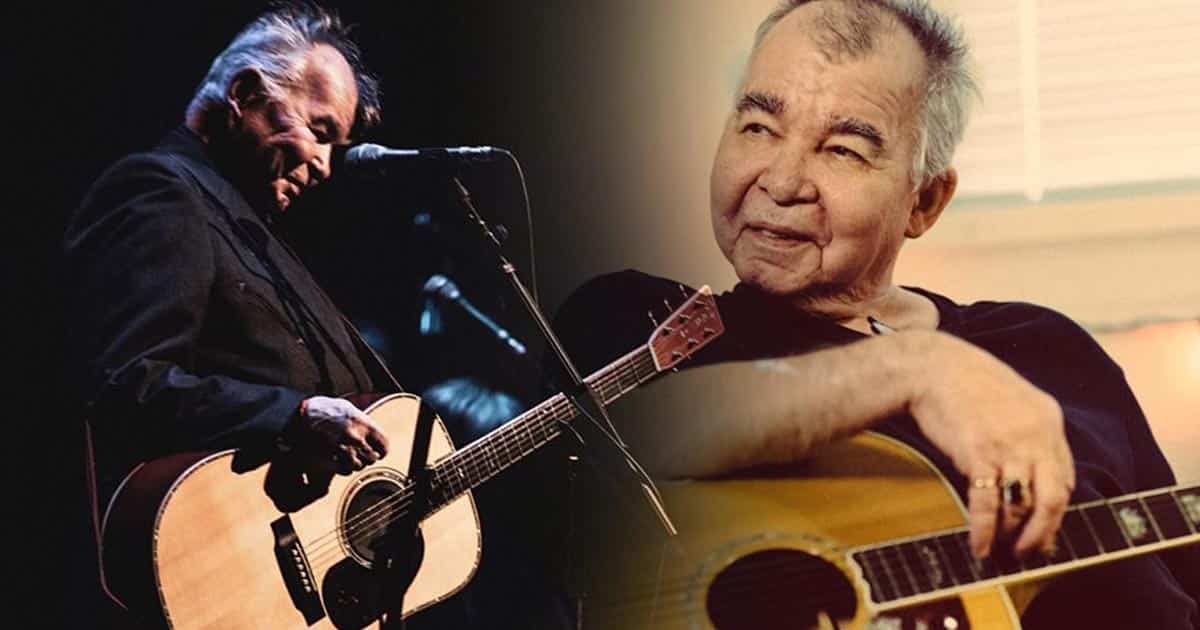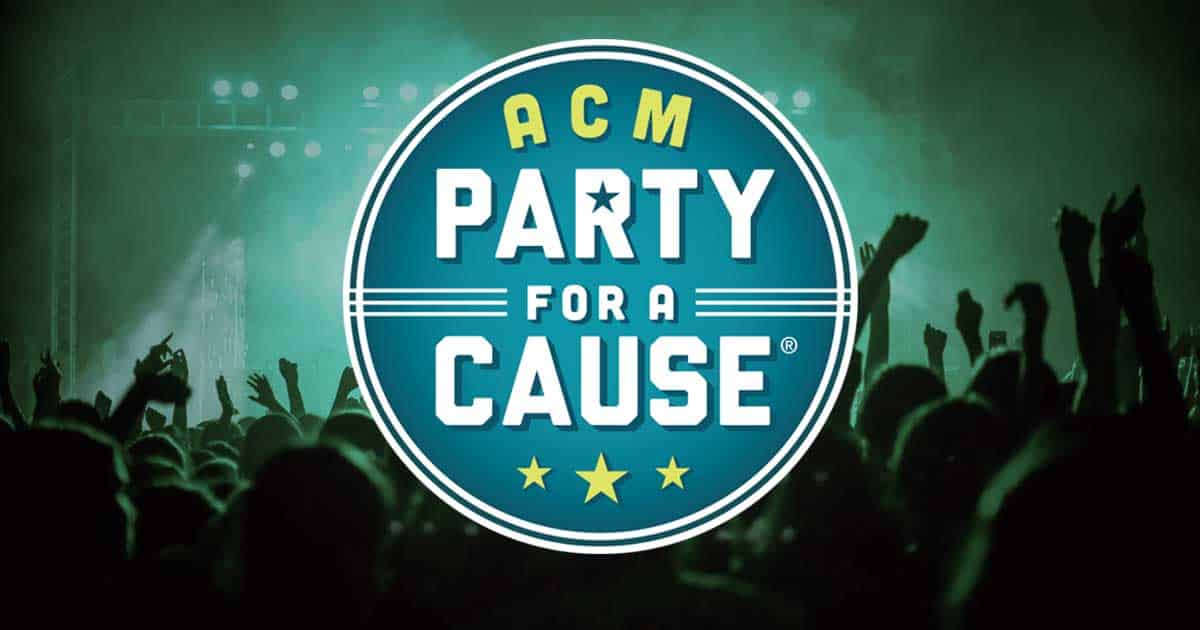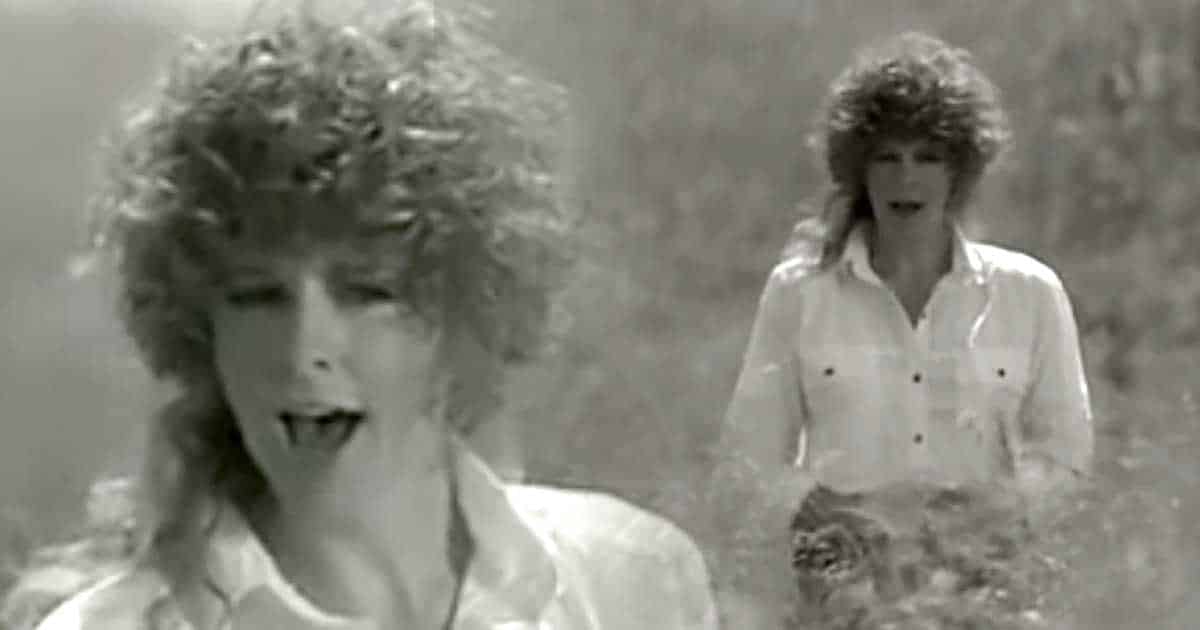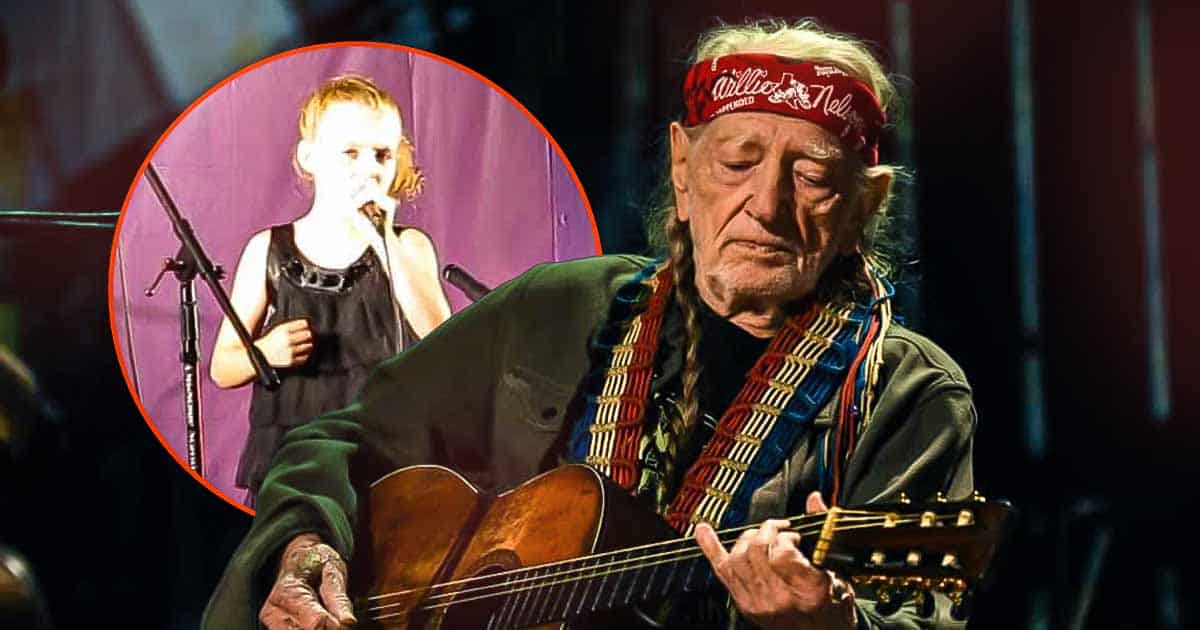John Prine never fails to write lyrics that are so impactful, in a variety of ways, that they can leave a listener in a state of sheer awe. Well, there’s no doubt why he has been named as the Mark Twain in country folk.
His songs have plenty of humor and dozens of heartbreaks. But, Prine’s signature is the ability to flawlessly mix the two into the same song, using clever wordplay, a quick one-liner or curious details to help fans smile through the tears.
This is why you will never find any bad John Prine songs. Here are Country Thang Daily’s picks for Prine’s Top 9 songs.
1. “Angel From Montgomery” (1971)
“Angel From Montgomery” is an unforgettable portrait of “a middle-aged woman who feels older than she is.” It’s a song about what could have been, about opportunities missed and dreams long lost. The song begins with: I am an old woman/ Named after my mother.
In John Prine’s 2018 interview with the Rolling Stone, he was asked what made him comfortable using a female perspective. The singer-songwriter said: “Nobody told me you weren’t supposed to.”
“Ignorance is bliss as a writer, I think. I always had an affinity for older people,” Prine continued. “I had a job delivering newspapers, and one place I had to go was an old people’s home. Some people would introduce you to their neighbors as if you were a nephew or grandson. They didn’t get many visitors, so they acted like you were coming to see them. And that stuck with me for a long time.”
This John Prine song became a country standard. It has also been covered most famously by Bonnie Raitt, which to Prine stand out the most among all of his songs been performed by so many artists through the years.
In Beyond Words, a songbook/photo collection released through Prine’s own longtime Oh Boy imprint, you will see the original handwritten draft of “Angel from Montgomery” written by Prine when he was about 22 years old.
2. In Spite of Ourselves (1999)
After beating throat cancer, Prine’s first release the 16-song record featuring a collection of duets with some of Prine’s favorite female country artists including the breakthrough title track, a duet with Iris DeMent, “In Spite Of Ourselves”. In the 20 years since it came out, it has become Prine’s most successful song with over 40 million streams.
This song will make you realize that sometimes the best part of a relationship is the ability to be completely comfortable just being yourself. Despite your weird antics, you know you’ve found someone who’ll accept you for who you are. Prine and DeMent, on the other hand, were so well-matched as a bantering, grudgingly tender couple that it’s a real pleasure to listen.
3. “Illegal Smile” (1971)
This sly ballad became an anthem for weed-smokers over the years. However, according to Prine, “Illegal Smile” was originally written about his own private amusements. Despite lyrics about having “the key to escape reality” and fearful run-ins with the law might suggest otherwise, Prine said the song was not an ode to marijuana.
“I have to confess, the song was not about smokin’ dope,” Prine once said. “It was more about how, ever since I was a child, I had this view of the world where I can find myself smiling at stuff nobody else was smiling at. But it was such a good anthem for dope smokers that I didn’t want to stop every time I played it and make a disclaimer.”
“When I first started singing it I went on this underground TV program, and the only stage set they had was two chairs and this fake marijuana plant. I came on and sang “Illegal Smile,” and they kept having the camera pan in, real psychedelic-like, on the plant. On top of that, I got fine by the musician’s union for not taking any money to do the show.”
4. Sam Stone (1971)
Issues about war and drug addiction is absolutely hard to talk about, but Prine did it with grace and poignancy in his debut album. Sam Stone narrates the struggles of a war veteran as he was trying to settle to life after physical, mental and emotional suffering, and eventually turns to drugs.
“At that time, all the other Vietnam songs were basic protest songs, made up to slap each other on the back like “Yeah, this is the right cause.” I don’t remember any other songs that talked about the soldiers at all,” Prine said.
“I came up with the chorus first and decided I really liked the part about the “hole in daddy’s arm.” I had this picture in my mind of a little girl, like Little Orphan Annie, shaking her head back and forth while a rainbow of money goes into her dad’s arm. I think I invented the character of Sam Stone as a storyline just to get around to that chorus.”
5. Souvenirs (1972)
“Souvenirs” is a song wrapped up in regret and sorrow. It’s a song he wrote reminiscing the fear he felt when he thought he will never see his brother again after he got lost in the crowd in a carnival when they were still a kid. “My parents thought that he’d been kidnapped or something, so they were frantic, looking for him, and the police at the carnival were looking for him, and I remember I was crying, and I thought my brother was gone forever, you know,” Prine recalled.
“And I had this small horse he’d won it for me at one of the stands. A small horse with red sparkles all over it, and I was holding it in my hand and I just kept thinking, “Oh, it’s all I’ve got left of him is this souvenir.”
Prine said that the song was his “emotion of that happening, and I put it into words so I could get over to somebody else how I felt that day, without explaining that it was about losing my brother.”
6. Christmas in Prison (1973)
“Christmas in Prison” is one of John Prine songs that showcase how unique songwriter he is. This is not your usual Christmas song and love song but it’s deeply unconventional with lyrics that are both funny and wildly haunting. It tells about a homesick inmate longing for his lover, though Prine said that the man in prison subject may not be in a literal cell, “It’s about a person being somewhere like a prison, in a situation they don’t want to be in,” he said. “And wishing they were somewhere else. But I used all the imagery as if it were an actual prison.”
7. Paradise (1971)
The song “Paradise” became a country classic covered by everyone from Roy Acuff to the Everly Brothers; much to Prine’s surprise. “I wasn’t even going to record it because I didn’t think anybody would be able to pronounce ‘Muhlenberg,’” The singer-songwriter said.
This song is Prine’s sentimental recollection of Paradise, Kentucky, a small coal-mining town where his parents grew up and met before moving north to find work. “Paradise was a real place in Kentucky, and while I was in the army in Germany, my father sent me a newspaper article telling me how the coal company had bought the place out,” Prine said.
“Paradise was a real place in Kentucky, and while I was in the army in Germany, my father sent me a newspaper article telling me how the coal company had bought the place out,” Prine continued.
8. Summer’s End (2018)
“Summer’s End” is one of the beautiful tracks from Prine’s “The Tree of Forgiveness” released in 2018 that only proves Prine’s lyrical storytelling is still unmatchable after almost five decades. It has the trademark of John Prine songs of making his listeners laugh at one line and cry at the next as it offers up a heartbreaking metaphor for old age.
“There’s a natural sadness with that song because I do think about me and John,” Fiona Whelan said who married John in 1996 and served as his manager. “I think, ‘OK, we have had two seasons together, and we are going into the third season.’”
9. When I Get to Heaven (2018)
“When I Get to Heaven,” “When I Get to Heaven” is the final track on The Tree of Forgiveness and it is the cheeriest song about dying ever sung. Prine laid out what he will do when he reaches the pearly gates: When I get to heaven /I’m gonna shake God’s hand / I’m gonna thank him for more blessings / Than one man can stand,” Prine sings. “Then I’m gonna get a guitar / And start a rock ‘n’ roll band / Check into a swell hotel / Ain’t the afterlife grand?
Prine pledges to open up a nightclub called the Tree of Forgiveness in the afterlife.
John Prine songs are compassionate, funny and absolutely witty enough to make a country songbook both exceptionally terrifying at the same time warm and welcoming. Prine was a wise guy and a comedian, but it’s actually his massive empathy, channeled with casually thorough poetics, that set him apart.


















